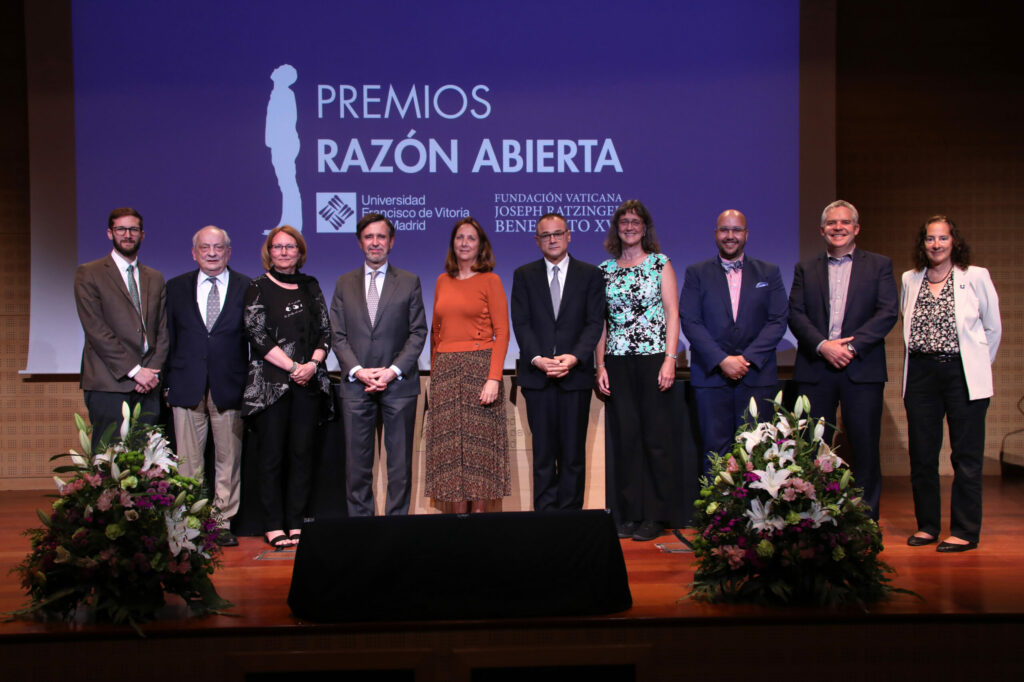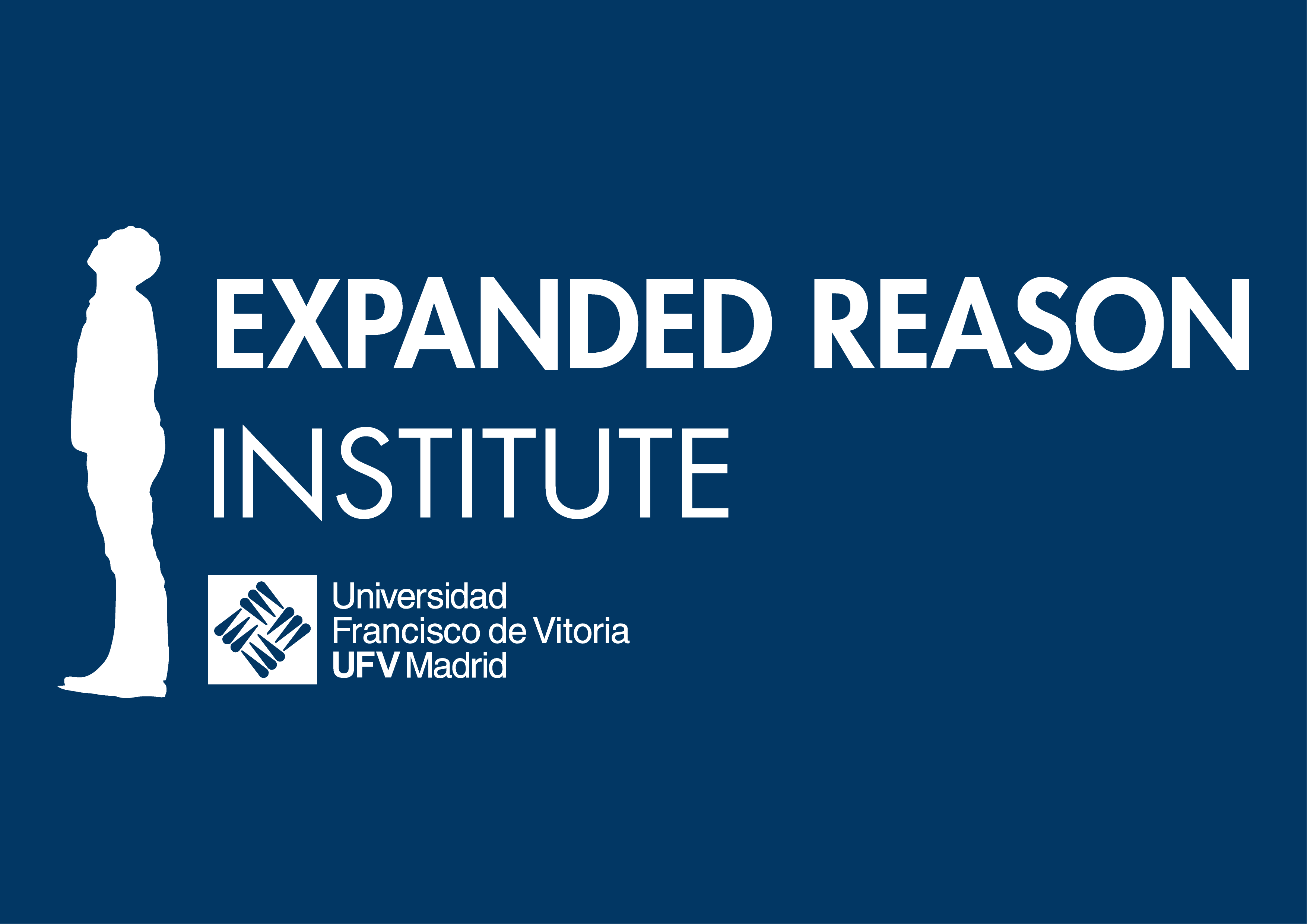Expanded Reason Conference 2022
"The human being in contemporary science"
The V Expanded Reason Conference “The human being in contemporary science” has a double intention: on the one hand we want to present some of the best works and researchers of our time, several of them winners of the last editions of the Expanded Reason Awards. They will show us the path that biology, biotechnology, physics, ecology, neuroscience, education, etc., are following to make science more human. On the other hand, we will try to deepen in a look at reality that places science on the path of respect and service to man and the world.
In short, we will ask ourselves, with the help of experts, what are the challenges, opportunities and difficulties presented by the different fields of contemporary science in relation to the dignity of the person and the care of their environment, aware that scientific advances will be fruitful as long as they are at the service of the growth and development of human beings and the societies and communities in which they live.
How was the Expanded Reason Conference "The human being in contemporary science"?
María Lacalle, director of the Expanded Reason Institute, was in charge of inaugurating the conference in its fifth edition under the title “The human being in contemporary science”. During her speech, she said that there is a great responsibility in today’s world to make science more human and to work for the unity of knowledge without avoiding difficulties. He referred to John Paul II when he exhorted to study serious contemporary problems such as human dignity, the promotion of justice, the protection of nature, the search for peace and a new economic order that better serves the community. Research, in his view, must go to the root of the problems by seeking creative solutions.
Round tables
Education: a path to meaning
The wonder of the world through quantum physics and ecology
Michael Taylor proposes to discover the metaphysics of the gift in order to appreciate the beauty of creation. In philosophical terms, wonder demonstrates the humility that one must have before reason, because it exposes oneself to an overabundant objective reality that becomes intelligible. He explained that the world communicates truth and beauty so that the human being receives the gift of wonder and this, precisely, reminds us that man is limited, but that he can also embrace a portion of reality.
Javier Sánchez Cañizares remarked that the astonishment of the scientist comes from living in a world that is not chaotic, from knowing that in a few seconds it will not explode into a thousand pieces, since there are a series of stable patterns. “It is part of the sense of mystery,” said Professor Sánchez Cañizares, but not as an excess that shows the human limits, but as an astonishment about the ability to understand how the processes of nature work, something that Albert Einstein himself recognized.
The V Expanded Reason Conference “Man in Contemporary Science”, which was held on May 23 and 24, 2022 at the Francisco de Vitoria University, had a double intention: on the one hand we want to publicize some of the best works and researchers of our time, several of them winners of the latest editions of the Expanded Reason Awards. They will show us the path that biology, biotechnology, physics, ecology, neuroscience, education, etc., are following to make science more humane. On the other, we will try to deepen a look at reality that places science on the path of respect and service to man and the world.
In short, we ask ourselves, with the help of experts, what are the challenges, opportunities and difficulties that the different areas of contemporary science present to us in relation to the dignity of the person and the care of their environment, aware that scientific advances they will be fruitful as long as they are at the service of the growth and development of the human being and of the societies and communities in which they live.
Are we physically and psychologically determined? Neuroscience and Psychology in dialogue
The third round table was held under the title “Are we physically and psychologically determined? Neuroscience and psychology in dialogue“. To answer the question of whether the human being is physically and psychologically determined, Paul Vitz presented a Catholic Christian metamodel in which he defends free will from three points of view: the way in which life can be known (experience of conscience), the choice of the therapeutic process to develop the virtues, and the spiritual life it entails (soul capable of choosing God). Therese Lysaught has discovered with her fellow researchers where the idea of neuroscience being determined comes from. They realized that there was a correlation between economics and virtue, because if there was prosperity it was because of being virtuous, so that a whole cultural anthropology was rooted in the most recent version of homo economicus. And, furthermore, they found that there was an assumption of biological determination, based on medication and the reduction of psychological problems to a genetic issue, which departs from the person-centered model and neglects the social context. For this reason, he encouraged the creation of open spaces that address pertinent questions and establish an interdisciplinary dialogue.Biology and biotechnology at the service of the human question
Biology and biotechnology at the service of the human question
EXPANDED REASON AWARDS CEREMONY
The Awards Ceremony, which concluded the Expanded Reason Conference, brought together the winners of the IV and V editions who, due to the pandemic, were unable to receive their awards in previous years.
The Chancellor of the University Francisco de Vitoria, Daniel Sada, and the Executive Secretary of the Vatican Foundation Joseph Ratzinger-Benedict XVI, Pierluca Azzaro, gave welcoming remarks in which they congratulated the winners and stressed the importance of the mission of the Expanded Reason Awards in the university world as a service to society.
The winners of both editions took the podium to receive their awards and thanked their universities and institutions of origin and their work teams. They all emphasized that the fruit of their work would not have been possible without their teams and related communities.
THE WINNERS AND THEIR WORKS



